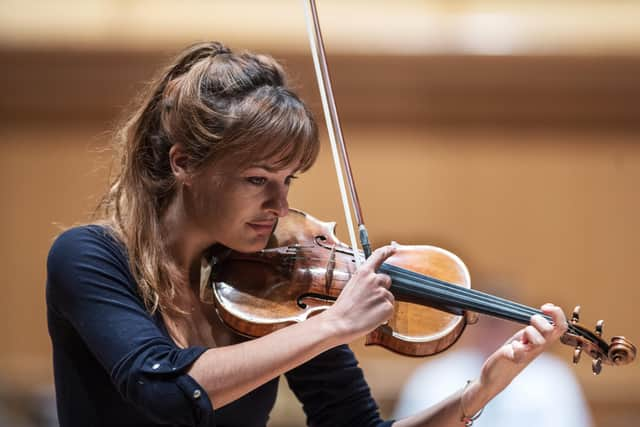Music review: SCO & Nicola Benedetti, Usher Hall, Edinburgh
SCO & Nicola Benedetti, Usher Hall, Edinburgh ****
It’s often a bit of a topsy-turvy concert when Beethoven’s 40-minute gentle monster of a Violin Concerto is on the programme. Even more so when it forms the evening’s centrepiece – or make that second-half climax – in the hands of Scotland’s starriest violinist. But that coming apogee also made the concert’s brief first half seem a bit like an extended up-beat, which was a shame because it showed the Scottish Chamber Orchestra on tremendous form under the front-desk leadership of violinist (and former SCO co-leader) Benjamin Marquise Gilmore. He set a brisk pace for the jazzy opener, Jessie Montgomery’s intricately woven Strum, which the SCO strings attacked with abundant enthusiasm and no little sense of swing. Wind and brass players joined them for Mozart’s Symphony No. 34, and they delivered the composer’s blazing, brassy pomp with a wonderful sense of grandeur and occasion, pushed urgently onwards by Marquise Gilmore.
But still, as the buzz in the packed Usher Hall confirmed, the main event was to come after the interval; and Nicola Benedetti’s Beethoven Concerto was in many ways a thing of wonders – even in the tumbling figurations of her first entry, for example, she sculpted every phrase as if weighing up an argument, considering alternative points of view, and reaching a conclusion. It was a deeply thoughtful account, but one that focused with such microscopic precision and insight on detail that sometimes a sense of overall direction was somewhat waylaid. It resulted in a performance that felt less a compelling vision of the work as a whole, more a succession of vividly imagined episodes, evocatively delivered though they undeniably were.


Advertisement
Hide AdAdvertisement
Hide AdIf anything, the SCO musicians played even more incisively than before the interval, with high contrast and high definition, but with a gloriously supple sense of rhythm. It was a performance of fresh insights, even revelations, even if they didn’t always blend together into a seamless whole.